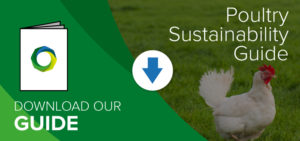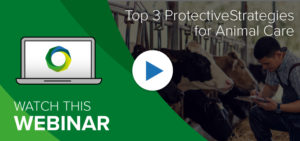The appearance of yet another undercover video showing employee abuse on a dairy farm has shaken and angered consumers and retailers across the nation. As information continues to emerge, the fall out continues to impact the dairy industry. The reaction is not over yet and its final affects remain to be seen.
It’s important to remember that those alarming video scenes not only appalled livestock producers, but industry stakeholders as well. K·Coe Isom has been actively responding to partners across the dairy, swine and poultry industries that are asking what more they can do to ensure such employee behavior never happens at their operation. To ensure protection for your animals, employees, and business, it’s crucial to manage risk with analysis, preparation and training.
Top 3 Protective Strategies for Animal Care
These three strategies are especially crucial in this age of larger operations, labor challenges, public scrutiny and undercover activists:
1. Employee training – Employee training and written protocols are paramount. The goal is to train your employees to do the right thing all the time.
The most effective programs provide an on-demand, virtual service that enables clients to train, test and track their employees on daily farm activities, including animal care, job duties, standard operating procedures, company values and more. Training and testing are typically offered in both English and Spanish.
2. Risk monitoring – Managers can’t be everywhere at once, but you still need to make sure your protocols are followed and your assets protected.
Risk monitoring captures critical operational data remotely via cameras mounted in your facility. As a third-party objective evaluator, we monitor high-risk areas of your operation each day to act as a second set of eyes. Trained technicians monitor animal well-being, biosecurity, production efficiency, site security and access control and worker safety.
Risk monitoring not only uncovers procedural drift and other opportunities for improvement but also provide positive feedback and training opportunities.
3. Crisis management – If you can’t prevent a crisis, you can minimize potential damage by preparing in advance. It is important to have a written plan ahead of time that dictates how you and your team will respond in a crisis.
It’s imperative that you get your management team trained to develop emergency action plans from pre-existing templates, coached on how to work with news media, as well as educated on how to manage a crisis and training employees on how to react to a crisis. Being proactive will save you time and stress if an emergency strikes. Preemptive crisis training can improve your crisis performance and reduce negative impacts.
Enhance Animal Welfare with Analysis
Following unfortunate animal welfare events, many of our conversations have been with farmers that already participate in industry standard animal well-being programs that provide animal welfare standards, training, audits and more. In the dairy industry, we know that more than 98% of the U.S. milk supply comes from farms participating in the National Dairy FARM (Farmers Assuring Responsible Management) Animal Care Program. FARM Animal Care is an important industry-driven program that outlines best practices, including animal health from birth to end of life, housing, nutrition, transportation and handling.
The importance of implementing specialized resources and services to ensure that animals are raised ethically and are provided comfort and care is crucial for animal well-being, as well as managing risks for your business. If you haven’t considered this yet, we recommend an objective, third-party animal welfare analysis where experts review strengths of the operation and provide feedback on opportunities for improvement. Once the analysis is conducted, you can focus your energy on the areas of high priority.
Most of all, as we have witnessed, no business should assume an animal abuse video or other negative event can’t or won’t happen to you. Start working today to lay the groundwork to protect your business, reputation’ and markets.
K·Coe Isom supports the dairy industry by providing resource development, training and technical support for the FARM program.
To learn more about K·Coe Isom’s effective “Cultivate” virtual learning program, visit: https://www.pinionglobal.com/services/virtual-learning/. Agriculture courses range from the areas of equipment safety, manure storage, and animal well-being, to worker health and safety, dairy, and egg production.
Reach out to K·Coe’s Sustainability team members for more information.











